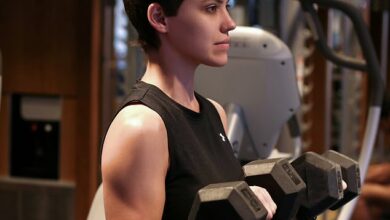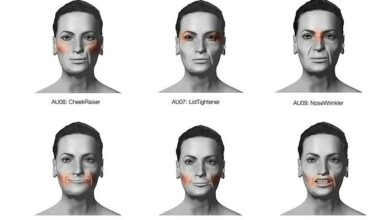Michael Mosley’s stunning latest documentary reveals the human body’s most astonishing functions – from producing a litre of saliva a day to creating bone-strengthening hormones
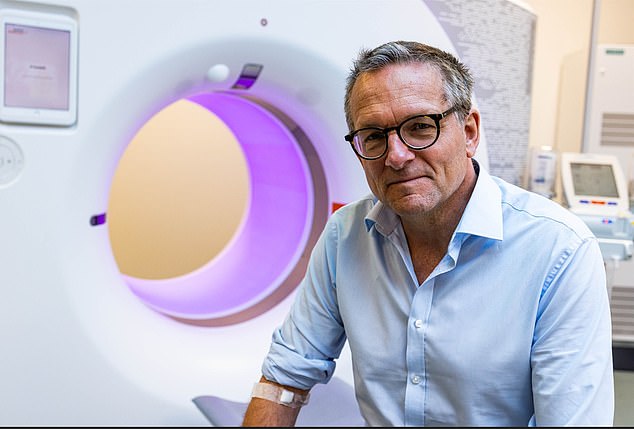
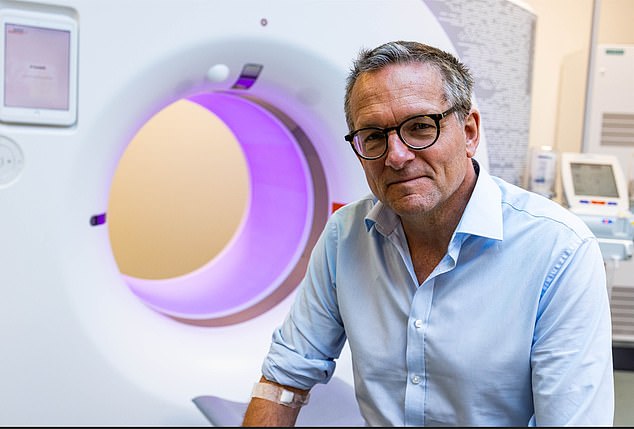
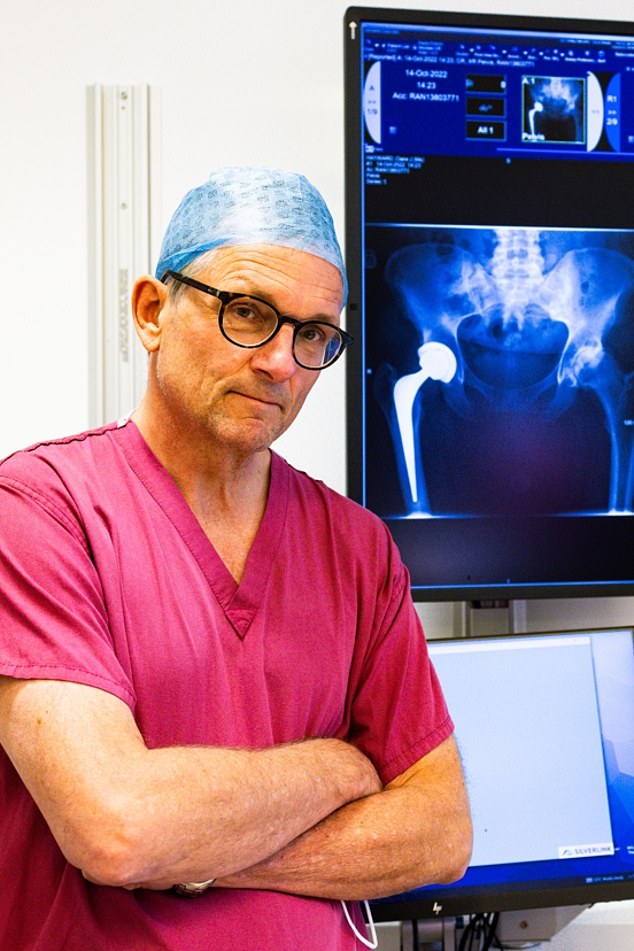
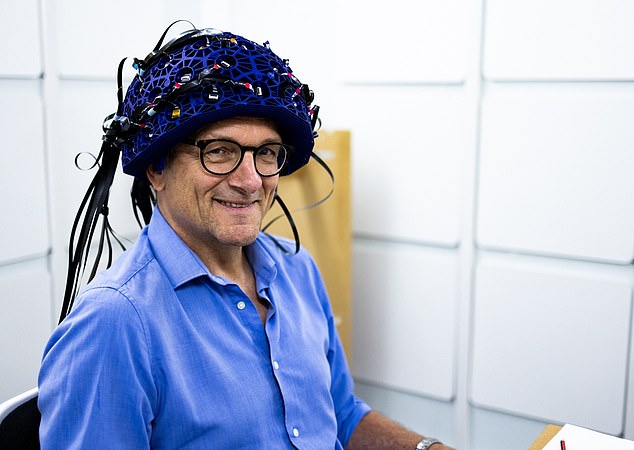
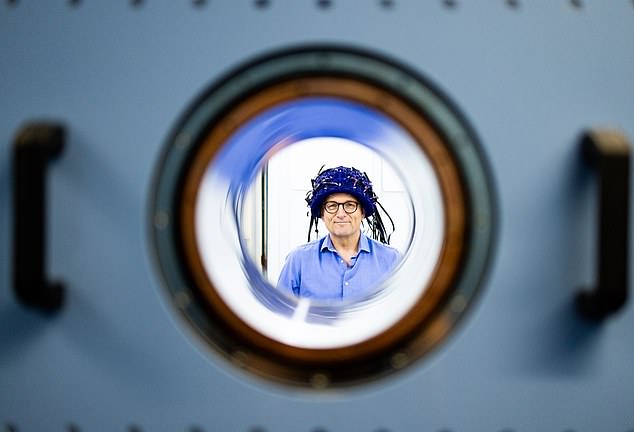
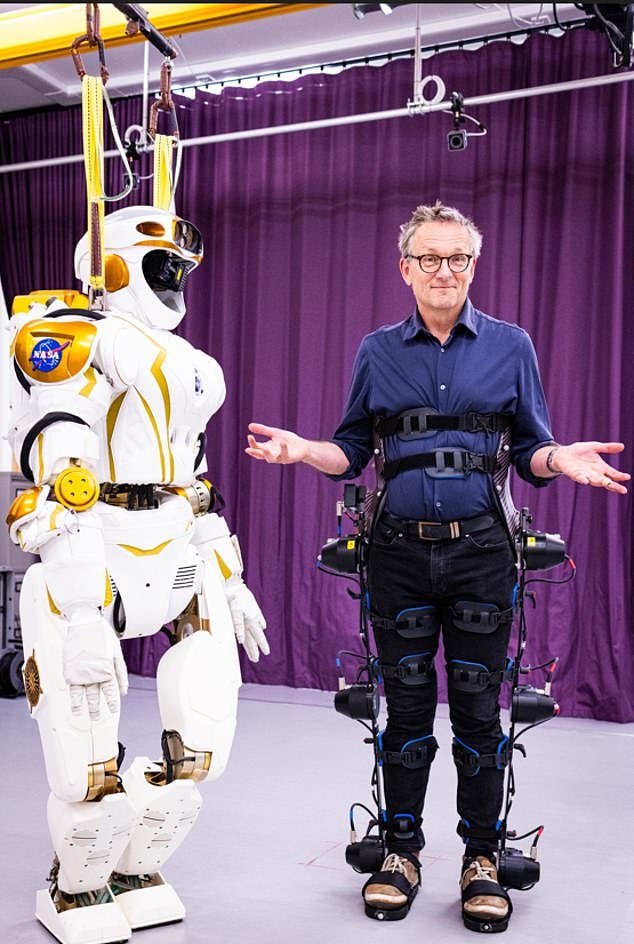
Fans of the late, great Dr. Michael Mosley can rejoice with one last fantastic documentary, hosted by the health guru.
The three-part programme, recorded last year for Channel 5, sees the former Mail columnist unravel the wonders of the human body, discovering everything from why bones break as we age to groundbreaking cancer treatments.
Dr Mosley, who died aged 67 from heat exhaustion while on holiday in Greece, puts his own body under a microscope and undergoes experiments to test the health of his heart, saliva production and how his body copes with a dip in icy water.
In the first episode, airing on Thursday at 8pm, Dr Mosley travels to Fife to meet Thomas, who suffers from a common neurological condition and is about to undergo ground-breaking brain surgery.
The 71-year-old suffers from essential tremor, a condition that affects around a million Britons and causes involuntary shaking or trembling.

Michael Mosley, who died this summer while on holiday in Greece, puts his own body to the test in the three-part series. He tests his heart health, his saliva production and even takes an icy dip himself

To test a new predictor of heart disease, the former Mail columnist steps forward for the procedure, which involves injecting a dye into his bloodstream so his blood vessels show up on a CT scan.
Essential tremor is almost ten times more common than Parkinson’s disease and mainly affects people over 65 years of age.
But for Thomas, symptoms began in his forties, when he first noticed his right hand shaking.
In his mid-fifties, his hands and head began to shake, and it only got worse.
But now Thomas is heading to Dundee to undergo a potentially life-changing operation.
This innovative procedure uses a beam of ultrasound waves to destroy a small cluster of cells in the thalamus, a part of the brain involved in movement.
Doctors hope this will put an end to the chaos in Thomas’ brain, meaning it will no longer send out too many confusing signals that are causing his uncontrollable tremors.
Thomas will be fitted with a head brace to keep him still and will be kept awake during the operation, ensuring that the radiation does not affect the parts of his brain that control his speech.
If the deviation is even slightly off, he will be unable to speak or will become paralyzed.
To test his brain function after each ultrasound, Thomas’s doctors have him draw a spiral on a piece of paper.

The three-part series seeks to unravel the marvel of design and engineering that is the human body, inviting viewers to see our bodies in new ways and understand how they work and how the body changes as we age.

In the first episode, Dr Mosley travels to Dundee to meet tremor patient Thomas, who is about to undergo groundbreaking brain surgery
At first, he can barely write anything on the page.
But after seven rounds, his hand no longer shakes enough for him to make a full spiral.
“I am so grateful,” says Thomas – “I noticed a change right away. I have improved much more than I thought.”
“It will make a life-changing difference.”
Later in the episode, Dr. Mosley meets 76-year-old Allen, who is about to find out whether his experimental cancer treatment is a success.
Allen had been diagnosed with stage 4 lymphoma, a form of blood cancer, a few years earlier.
“They said there wasn’t much they could do to cure me,” he explained.
Before his diagnosis, Allen was a police officer in London and a personal security guard for Princess Diana for nine years.
He began to recognise symptoms of his cancer after he retired and lived in Dorset. Around the same time, a family of Ukrainian refugees came to live with him.
After the diagnosis, they decided to stay and care for their host.
“I had already planned and paid for my funeral,” Allen said.
“I didn’t think I would live much longer.”
But then Allen was thrown a lifeline by his medical team in Southampton: a treatment known as CAR T-cell therapy.

Throughout the episodes, the doctor continues to seek answers to burning questions such as why do we get creaky joints? What happens when we get the flu? Can we help our brains stay fit as we age? How do doctors replace a hip?
This revolutionary new cancer treatment strengthens the body’s immune system, allowing it to better recognize and fight cancer.
T cells, the body’s battle cells, are removed, modified in the lab, and re-injected into the bloodstream.
These genetically modified cells now have an enormous capacity to detect and eradicate cancer cells.
This approach doesn’t work for everyone, but luckily Allen gets great news at his checkup: he is in full remission.
Previously there were many cancerous tumors in his body, but now the scans are fine.
Thanks to breakthrough treatments like these, Dr Mosley explains, we are now six times more likely to survive cancer than we were 40 years ago. Yet one in two of us will be diagnosed in our lifetime.
In recent years, similarly amazing technologies have emerged to tackle another major health problem for Britons: heart disease.
Nearly a quarter of all deaths in the UK are caused by cardiovascular disease.
But a new test, developed by researchers at the University of Oxford, claims to be able to detect heart problems long before symptoms appear.
By looking at the fat surrounding the heart’s blood vessels, scientists can detect early signs of inflammation in the arteries, which could indicate a heart attack later on.
To test this, Dr. Mosley steps forward for the procedure, which involves injecting a dye into his bloodstream so that his arteries can be seen on the CT scan.
In this episode we also see how the doctor bravely signs up for a slightly more challenging experiment: swimming in cold water.
Dr. Mosley spoke to cold water enthusiasts and tried it himself. He says that when you swim in cold water, your arteries constrict. This makes your heart work harder to pump blood, which makes your muscles stronger.
During the dive, hormones are also released that are said to speed up metabolism and improve your mood.
Some regular swimmers even claim that it helps their immune system function, ironically preventing them from catching colds.
Finally, Dr. Mosley investigates why our bones become more brittle as we age.
To investigate the health of his bones, he travels back to Oxford University, this time to meet Professor Sue Black.
She explains that although bones may look solid on the outside, they are actually very alive and mobile on the inside.
As we age, the production of hormones, such as estrogen, that nourish these bone cells decreases.
However, after menopause, estrogen levels drop, causing bones to rapidly weaken.
Microfractures develop, which often do not heal on their own.
The condition, known as osteoporosis, is extremely common, affecting one in five women and one in twenty men.
To protect our bones as we age, we need to get plenty of calcium and vitamin C. We should also continue to do weight-bearing exercises, such as running and dancing.
The episode ends with Dr. Mosley agreeing to insert a camera through his nose to look at his larynx, and revealing the shocking fact that humans produce enough saliva each month to fill an entire bathtub.
In the next part of the docuseries he will Take a look at hip replacements, stress, and three things you can do at home to lower your blood pressure without joining the gym.


